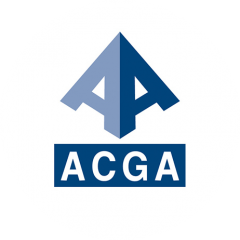Day 1 | Day 2
Day 1 Overview
08:15 Registration
09:00 Conference Opening
09:30 Regional overview: Asia’s choices
10:45 Coffee Break
11:15 ACGA Debate: “Is global stock market competition healthy for corporate governance?”
12:30 Lunch Buffet
13:30 Forensic governance: Spotting fraud and misinformation
14:40 Time for change: Board renewal in Asia
15:50 Coffee Break
16:20 In conversation with: Mid-cap heroes
18:00 Cocktail Reception
19:00 Gala Dinner
Day 1 Programme
Astor Ballroom, Level 9, The St. Regis Mumbai
08:15
Registration
Coffee will be served.
09:00 – 09:30
Conference Opening
Welcoming RemarksMr Steven Watson, Chair, ACGA; Partner, Capital International Investors, Hong Kong
Opening RemarksMs Madhabi Puri Buch, Chairperson, Securities and Exchange Board of India, Mumbai
09:30 – 10:45
Regional overview: Asia’s choices
A preview of our new CG Watch 2023 survey on macro corporate governance in Asia. What types of corporate governance are different markets in Asia forging, and what does the next decade hold? Are there natural limits to what Asia can achieve given the political uncertainty, regulatory weaknesses and ageing boards in many countries? Conversely, will the need for greater transparency and accountability on sustainability and climate change drive improved corporate governance? Which markets are poised for faster governance growth in the years to come?
SpeakersMr Jamie Allen, Secretary General, ACGA, Hong Kong
Mr Seungjoo Ro, Head of Sustain Asia/ESG Research, CLSA, Hong Kong
10:45 – 11:15
Coffee Break
11:15 – 12:30
ACGA Debate: “Is global stock market competition healthy for corporate governance?”
Until a few years ago, dual-class shares and SPACs were not part of the listing lexicon in Asia. Now they firmly are. Have stock exchanges engaged in a race to the bottom by lowering standards for IPOs? Or will investor pressure to enhance ESG reporting, board diversity and INED tenure enable bourses to attract more international credibility and capital? Is competition driving or dragging reform, and what other factors are at play?
SpeakersMs Elisa Cencig, Senior ESG Policy Adviser, Norges Bank Investment Management, London
Ms Grace Hui, Founder and CEO, Net Zero Asia; Former Head of Green and Sustainable Finance, HKEX, Hong Kong (Virtual)
12:30 – 13:30
Lunch Buffet, Astor Foyer
13:30
Afternoon plenaries
13:30 – 14:40
Forensic governance: Spotting fraud and misinformation
A session examining recent cases of corporate fraud in Asia. What are some of the early red flags investors and independent directors should look for? What do these cases say about the challenges facing auditors in the region? What more should securities and auditing regulators do to deter fraud?
SpeakersMs Shireen Muhiudeen, Founder, Corston-Smith Asset Management, Kuala Lumpur (Virtual)
Mr Praveen Sangana, Vice President – Equity, ESG & Forensic Research, Fidelity Investments, Bangalore
14:40 – 15:50
Time for change: Board renewal in Asia
What are regulators and market participants doing to encourage or require higher levels of board renewal around the region? Recent efforts include: limits on INED tenure; renewed focus on nomination committees; promotion of substantive policies, targets and plans for director and management diversity; director training institutes to raise knowledge levels and create pools of directors; and the arrival of the much-misunderstood “skills matrix”. The discussion will also examine why board renewal is necessary to address climate and environmental strategy, cybersecurity, human capital management, human rights and longstanding governance issues such as board effectiveness and independence, generating value for shareholders and ensuring sound systems of internal control.
SpeakersMr Tan Boon Gin, CEO, Singapore Exchange Regulation, Singapore
Dr Niraj Gupta, Head of the School of Corporate Governance & Public Policy, Indian Institute of Corporate Affairs, Gurgaon
15:50 – 16:20
Coffee Break
16:20 – 17:30
In conversation with: Mid-cap heroes
ACGA Chair Steven Watson will lead a discussion on whether mid-caps in India are the future of good governance in the country. Are these companies leading the way or creating new forms of governance fit for a modern capital market? If not, what can, or should, investors do to encourage a new generation of well-governed listed mid-caps? Will AI help or hinder this process?
Speakers Mr Debasish Mohanty, CEO, Airawat Indices, Mumbai
Mr Udaya Kumar Hebbar, Managing Director, CreditAccess Grameen, Bangalore
18:00 – 19:00
Cocktail Reception, Astor Terrace
19:00 – 21:00
Gala Dinner, Astor Ballroom
Keynote Speaker Professor G. S. Jayasree, Founder & Managing Trustee, Samyukta Research Foundation, Thiruvananthapuram
